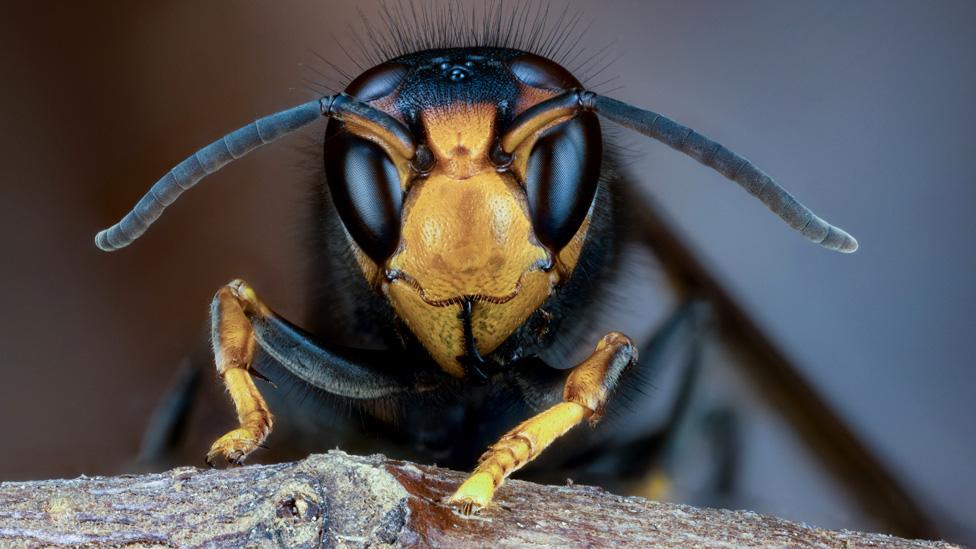Asian hornets: Why there are so many in Jersey and Guernsey
- Published
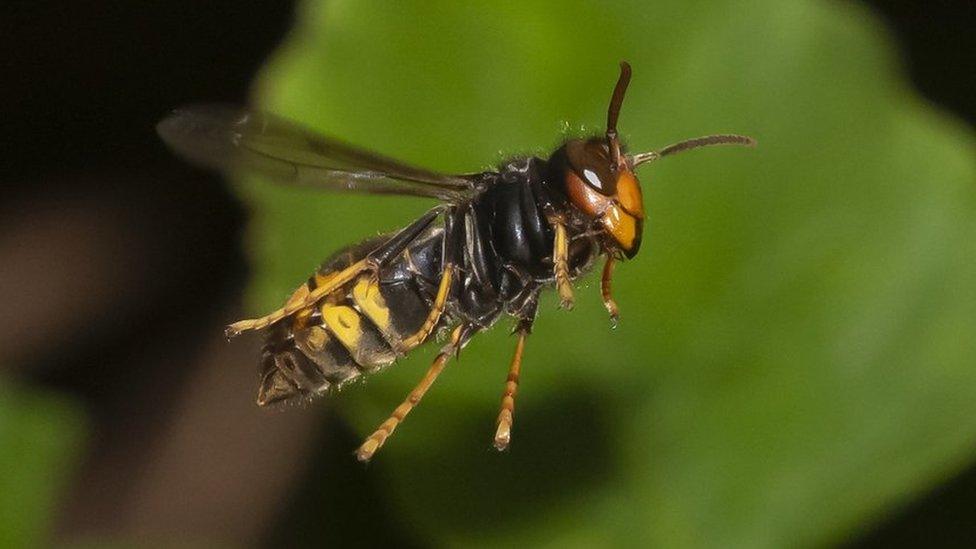
There have been more Asian hornet nests in Jersey than Guernsey, an expert has said
An Asian hornet expert has explained why the Channel Islands, particularly Jersey, has a large number of nests.
Alastair Christie, the senior scientific officer for invasive species for the Government of Jersey, said 335 nests were found in Jersey on 2023.
This was compared to 85 nests found in the UK since 2016, according to the UK government.
Mr Christie said the species can "have a variety of different impacts" on the environment.
In Guernsey, a total of five primary nests were found this year, meaning early nests made exclusively by a queen; and 14 secondary nests, which were bigger and made by worker hornets in the summer and autumn months.
Mr Christie said Asian hornets were understood to have first arrived in the south-west of France in 2004, and people in Jersey and Guernsey were "aware of their imminent arrival as we tracked their progress".
He said: "Quite simply there are more [Asian hornets] in Jersey and Guernsey because they got to us first and they've been with us in numbers longer than they have in the UK.
"In Jersey and Guernsey, we're separate jurisdictions but we liaise very closely.
"Guernsey is double the distance of France, so its hornet numbers are significantly lower than ours."
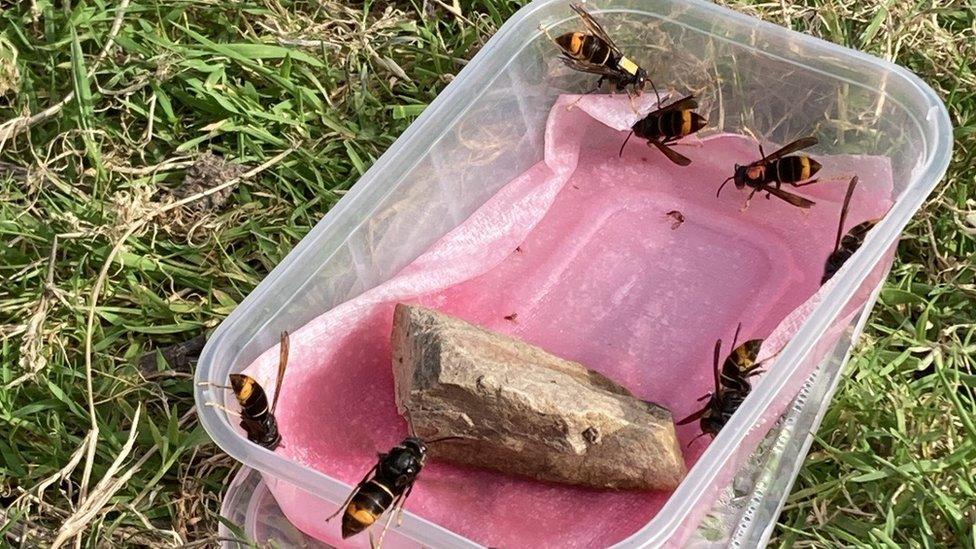
UK teams visited Jersey in September to learn about methods used to hunt the Asian hornet
Mr Christie said Asian hornets were an "very successful" invasive species and honey bees were often a target of them.
He said: "They do eat a wide range of other native insect biodiversity.
"The full impacts on native ecology are not fully known at the moment, but individual bee keepers can certainly testify to the effect of Asian hornets.
"It can be quite dramatic, depending on the level of attack and predation. The other obvious impact is that they carry a sting and, if they're disturbed, can be very aggressive.
"So, there's a danger to people if they disturb a nest."
Peak in October
Mr Christie said the end of September to the start of October was when nests "reach their peak" in terms of numbers and levels of aggression.
"The most dangerous time in terms of numbers is September/October time, but late May/early June the nests will have worker hornets who will defend the nest if it is disturbed."
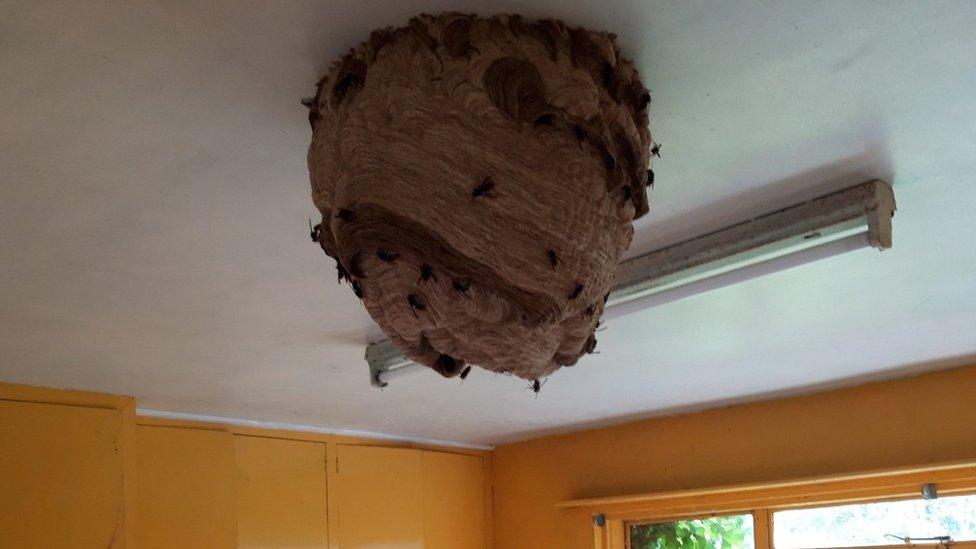
The largest nest of the year found in Jersey - about 15in (40cm) across - was discovered in a derelict house
He added: "The life cycle is identical to a wasp.
"A single queen hornet starts the nest in early April time, having come out of hibernation, and the nest starts at the size of a tennis ball and they gradually grow in size for the first few months up until July."
Francis Russell, Asian hornet strategy co-ordinator for Guernsey, said it had been an "unprecedented year" but he hoped it had been a "blip" due to the weather in 2023.
He explained very strong easterly winds could have pushed the hornets over from the French mainland.
"We are wondering if it's a bit of a freak of the weather and whether it's a bit of a one-off," he said.
He said 2024 could be another challenging year as they had tried to eradicate nests but some queens may have hibernated.
"We've got a question-mark over did we actually miss some queens that may have gone into the winter, and then the next thing is how many will we get in the spring that may arrive from France," he said.
Report it
People in the Channel Islands and the UK are urged to report a sighting of a nest or a suspected Asian hornet to their local authorities.
Mr Christie said: "In Jersey in particular we're lucky enough that we have a whole load of trained volunteers who track the nests.
"It's an amazing community effort.
"One of our secret weapons is the public of Jersey. They're the ones reporting the sightings and we can't track a nest until we've had a report.
"We're really grateful to them for all their support."

Follow BBC Guernsey on X (formerly Twitter), external and Facebook, external. Follow BBC Jersey on X (formerly Twitter), external and Facebook, external. Send your story ideas to channel.islands@bbc.co.uk, external.
- Published16 October 2023
- Published7 October 2023
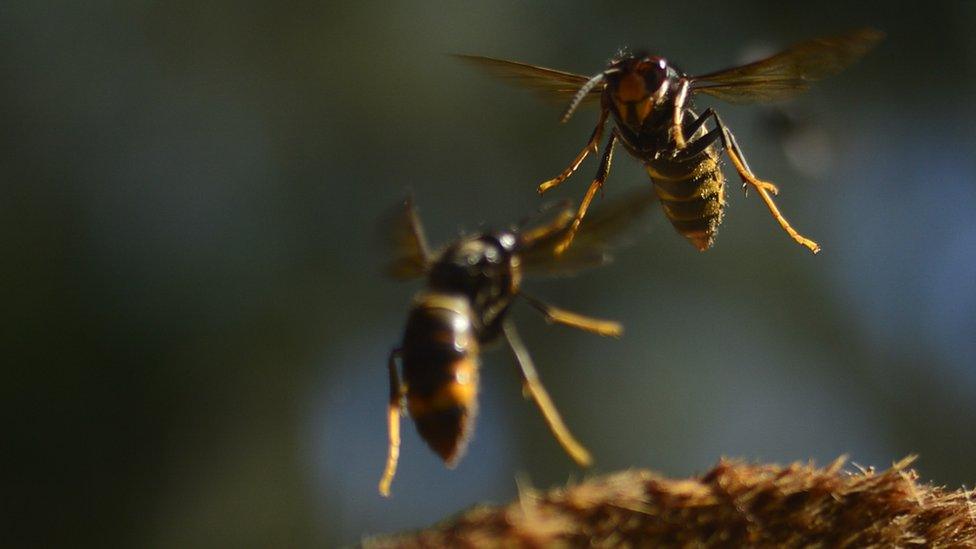
- Published20 September 2023
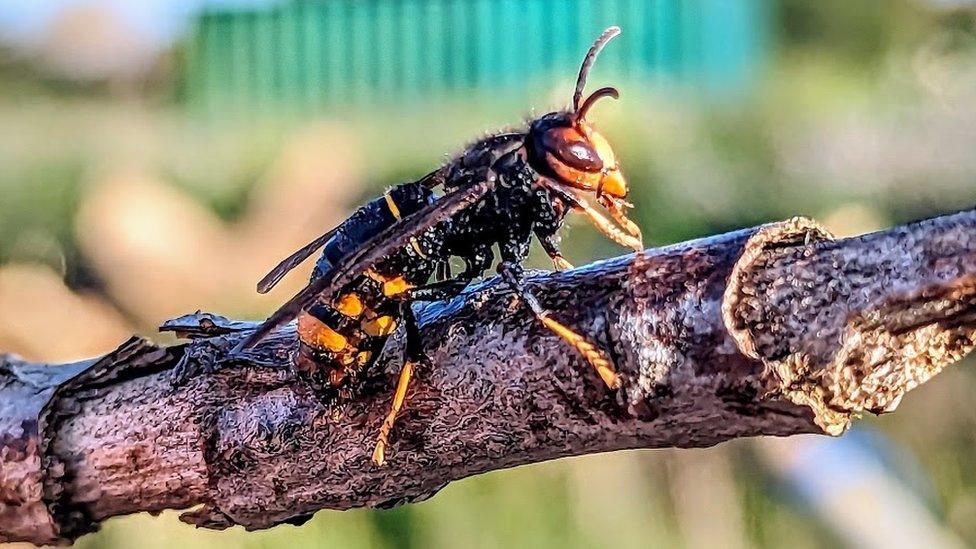
- Published8 September 2023
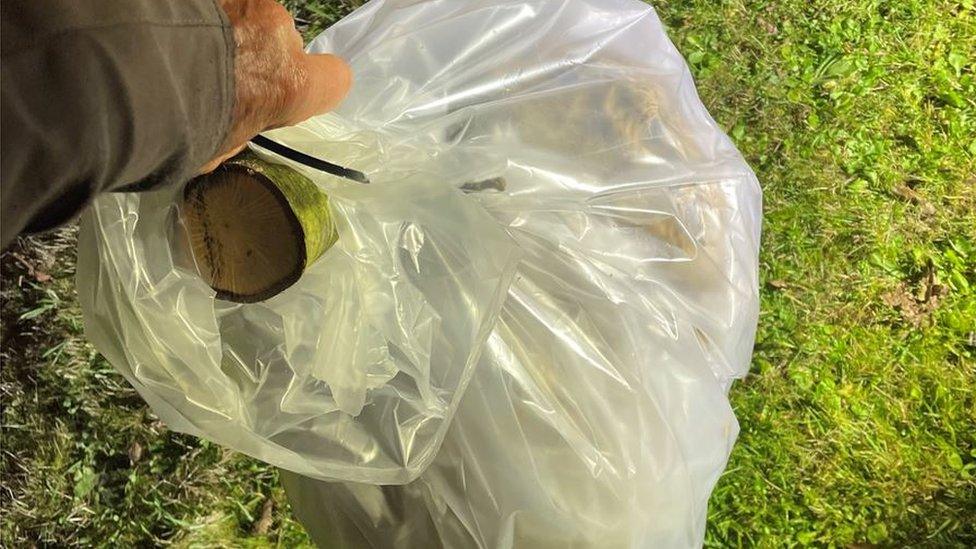
- Published7 September 2023
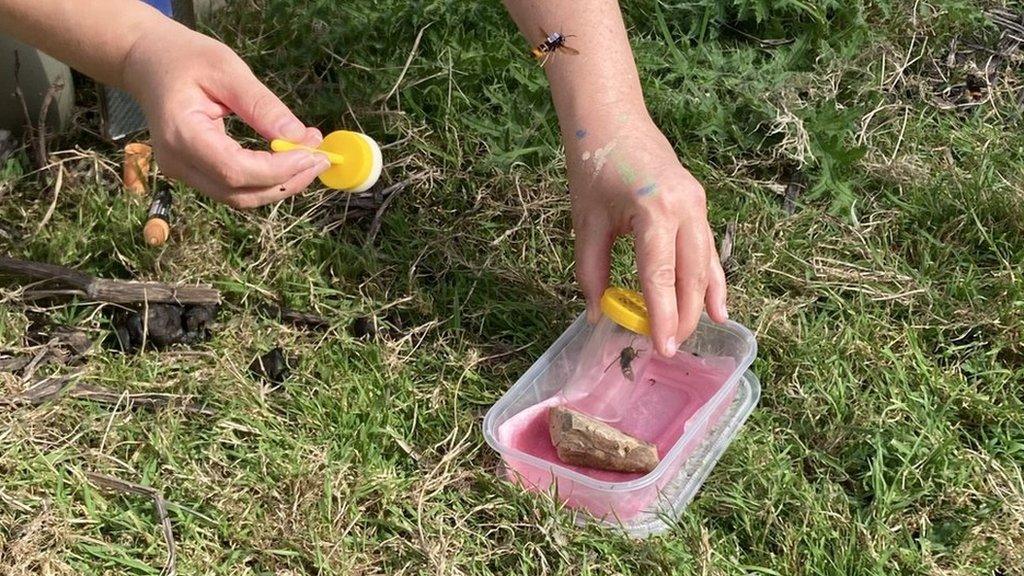
- Published4 September 2023
